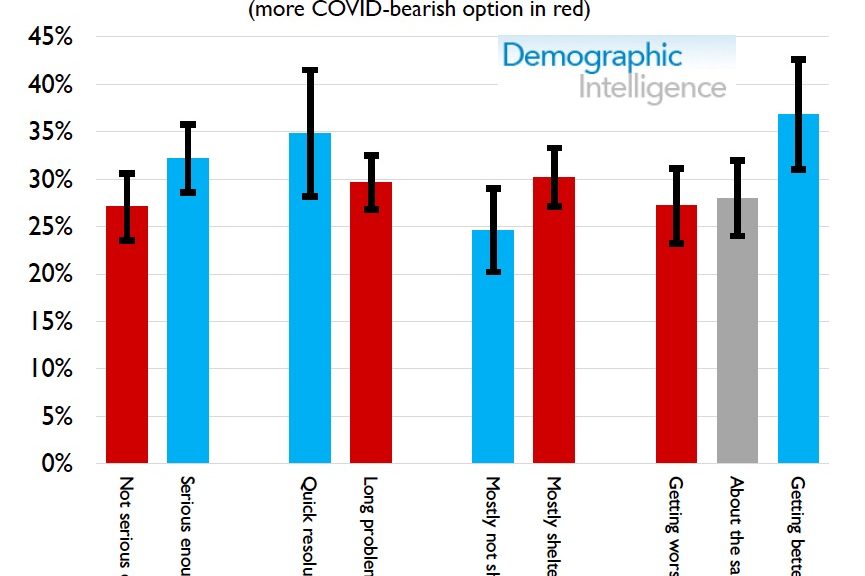
Share of Women Who Intend to have More Children by COVID impact
4% of U.S. women of childbearing age now wish to have more children than they previously considered as a result of the pandemic.
CHARLOTTESVILLE, Va. (PRWEB)
June 23, 2020
COVID-19 has impacted essentially every aspect of American life, including women’s plans for starting or growing their families.
The COVID Family Survey, conducted by Demographic Intelligence, finds that the pandemic has led about 3% of U.S. women who were considering have children to delay their plans to have a baby. In some cases, they are pushing back their plans to have children by several years.
At the same time, however, 4% of U.S. women of childbearing age now wish to have more children than they previously considered as a result of the pandemic.
In general, these effects are most pronounced for women whose lives have been significantly impacted COVID-19 in terms of having to shelter in place, having their childcare situations disrupted, or losing their jobs, among other things.
Overall, however, the pandemic is not among the top three factors that American women who are open to having more children are considering when making fertility decisions. The time demands associated with parenting, costs associated with childrearing and concerns about the economy rank ahead of COVID-19 in our survey.
# # #
About Demographic Intelligence
Demographic Intelligence (DI) is the premier provider of U.S. birth forecasts and fertility analytics for businesses with an interest in birth trends in the United States. DI provides reports and consulting services to companies in the following sectors: juvenile products, healthcare, media, financial services, consumer food, and household products.
Demographic Intelligence is advised in its work by five leading family scholars: Princeton economist Alicia Adsera, University of Pennsylvania demographer Hans-Peter Kohler, University of North Carolina demographer Philip Morgan, economist and Chief Information Officer Lyman Stone and University of Virginia sociologist W. Bradford Wilcox.
Share article on social media or email:

